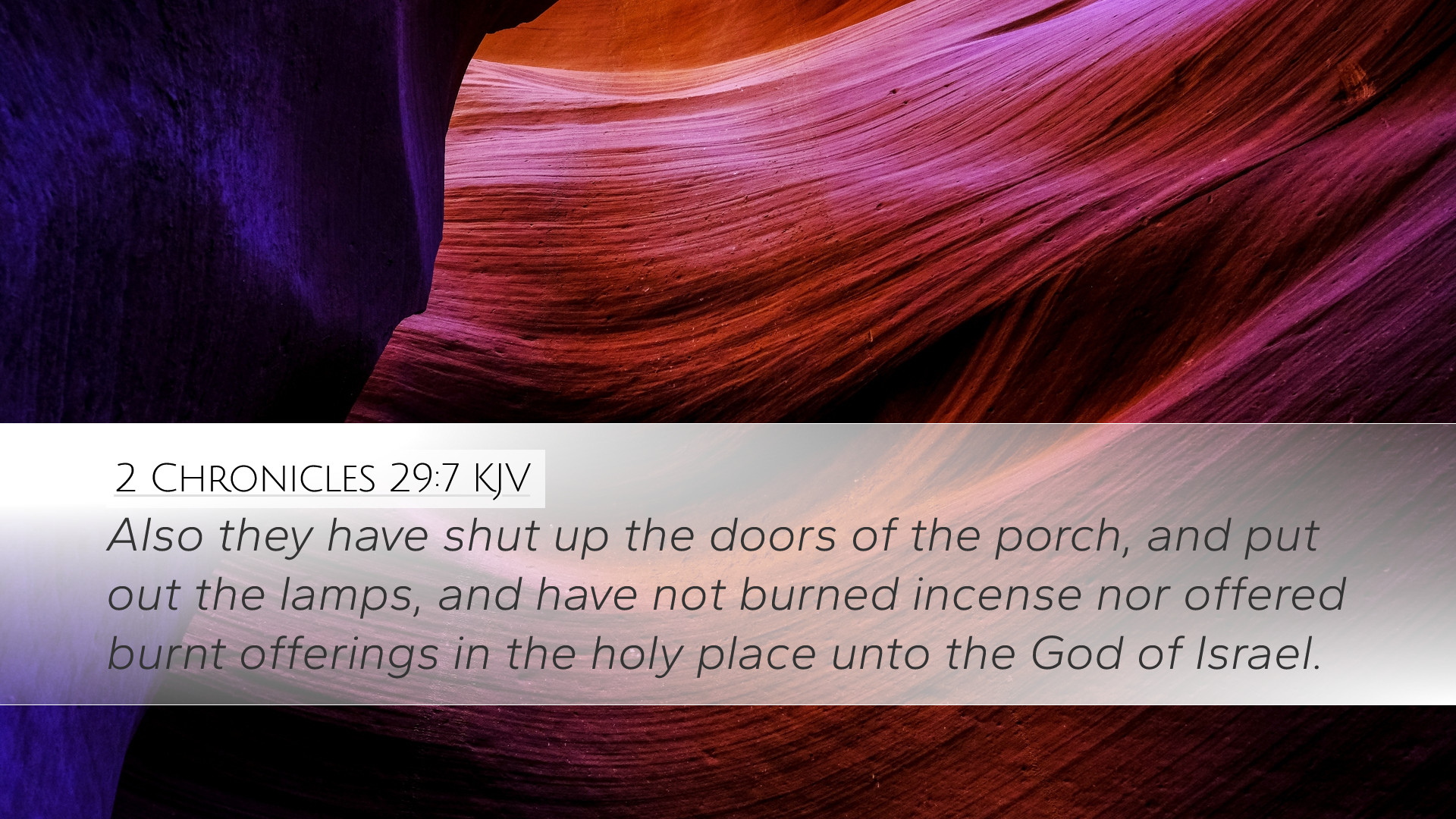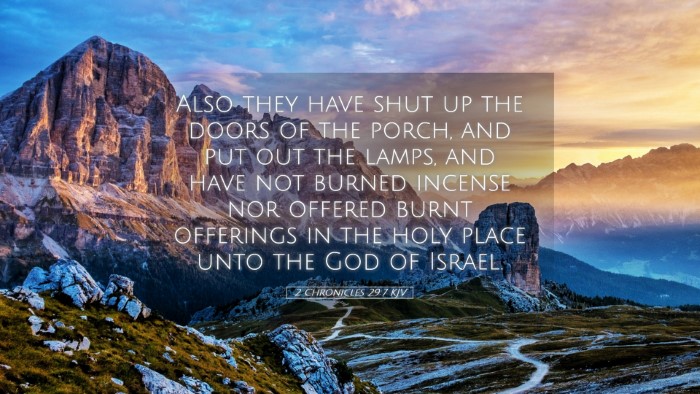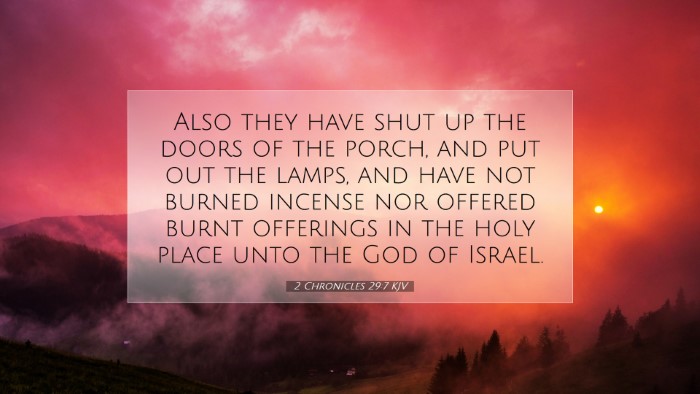Commentary on 2 Chronicles 29:7
2 Chronicles 29:7 states: "And also they have shut up the doors of the porch, and put out the lamps, and have not burned incense nor offered burnt offerings in the holy place unto the God of Israel." This verse provides a glimpse into the spiritual condition of Judah during the reign of Ahaz and the subsequent reforms initiated by his son Hezekiah. Below is a compilation of insights from various public domain commentaries on this significant verse.
Contextual Background
This verse occurs within the broader narrative concerning King Hezekiah's efforts to restore true worship in Israel after his father Ahaz had led the nation into grave idolatry and neglect of the temple worship.
- Matthew Henry: Henry emphasizes the grave spiritual decline during Ahaz’s reign, highlighting that the worship of God was virtually non-existent. The closing of the temple doors and the extinguishing of the lamps symbolize a complete rejection of divine worship.
- Albert Barnes: Barnes notes that the actions of Ahaz reflect a departure from the covenantal responsibilities imposed on Israel. The “burnt offerings” and “incense” represent intercession and commitment to God, which had essentially ceased under Ahaz’s unfaithfulness.
- Adam Clarke: Clarke describes the act of shutting the porch doors was more than just a physical closure; it signified a spiritual barrier between the people of Israel and their God, indicating a time of darkness and despair.
Theological Implications
This verse reveals several theological truths about the nature of worship and its importance in the life of God’s people:
- Neglect of Worship: The cessation of the burnt offerings represents a critical moment where Israel's national identity and covenant relationship with God were at risk. It reflects the broader implications of distancing oneself from God through disobedience.
- Symbolism of Light: The lamps, which were meant to be kept burning, symbolize the light of God’s presence. Their extinguishment indicates that the people had turned from God, leading to spiritual darkness.
- Call to Reform: This verse acts as an introduction to Hezekiah’s reform efforts. It sets the stage for the restoration of proper worship practices, emphasizing the need for repentance and return to God.
Application for Contemporary Believers
In reflecting on 2 Chronicles 29:7, it serves as a reminder for modern believers of the importance of maintaining a vibrant and active relationship with God through regular worship, prayer, and the dedication of our lives:
- Cultivating Worship: Just as Hezekiah sought to restore the worship that had been neglected, contemporary believers are called to prioritize worship in their lives. Regular attendance to fellowship and personal devotion is essential.
- Spiritual Vigilance: The verse warns against allowing secular influences or spiritual apathy to quiet our worship. Believers should be vigilant in maintaining their spiritual practices and community worship.
- Consequences of Neglect: The dire consequences faced by Judah serve as a cautionary tale. Neglecting God’s worship leads to spiritual decay and a distancing from His presence.
Conclusion
2 Chronicles 29:7 is a critical verse illustrating the spiritual decay of Judah and the urgent need for reform. The insights drawn from Matthew Henry, Albert Barnes, and Adam Clarke highlight the importance of worship in the believer’s life and remind us that vigilance is essential to prevent spiritual disillusionment. As believers reflect on this verse, they are called to rekindle their passion for God and uphold His worship in their lives, just as Hezekiah did.


